Law students who have had Kais Saied for constitutional law will certainly be familiar with French jurist Jacques Chevallier. The latter, an illustrious professor, provides an academic definition of the rule of law in his well-known book [1] on the subject. As per this definition, the government is bound by the rule of law, implying « that leaders are not above the laws, but exercise a function that is defined and governed by the law ». Three principles follow. First, the executive branch must comply with the rule of law; this compliance is overseen by a judge. Second, the judiciary must be independent from the executive. Finally, the law must be constitutional. In his time as president and even before Tunisia’s state of emergency was declared, Kais Saied has taken many liberties with these principles.
Between 1956 and 2011, the Bourguiba and Ben Ali regimes certainly served as no example in terms of respect for the rule of law. Although the Constitution of 1956 guaranteed a body of public and personal rights, a simple adjustment to the law enabled the legislator to empty these rights of substance[2].
In some cases, the government would violate a norm and subsequently integrate that violation into the code of law. For example, the first configuration of government was presidential, with the executive governed by the head of state who presided over a council of secretaries of state. The function of prime minister did not exist in writing until the constitutional revision of 1976 when it was integrated into basic law, in spite of the fact that the position had twice been served, first by Bahi Ladgham and then by Hedi Nouira.
The policy of « Taalimet »
Following the coup d’etat in 1987, « the rule of law and institutions » (dawlat al qanun wal mouassasset) became the leitmotif of Zine El Abidine Ben Ali. As French political expert Béatrice Hibou (3) recalls, the ten-dinar bills printed in 1994 bore this inscription. Hibou examines what she characterized as the fluid relationship between Tunisia’s ruling power with the law. In spite of the mechanisms in place to ensure the government’s compliance with certain standards (administrative court rulings, creation of the Constitutional Council), these were counterbalanced by behaviors and practices (presidential speeches with legal clout surpassing that of legislative work, reversal of the hierarchy of standards, disempowerment of administrative agents). Hibou also points out the ruling power’s frequent recourse to taalimet (instructions), unwritten orders which enabled the authorities to bypass the rule of law. Whether they take the form of a presidential announcement whose directive is executed without so much as a decree, or an agent’s unjustified refusal to acquiesce to a citizen’s legitimate demands, taalimet undermine the very foundations of the rule of law.
After the fall of Ben Ali, the state’s relationship with the rule of law became more ambiguous. In 2011, authorities of the transition period (the governments of Mohamed Ghannouchi and Beji Caid Essebsi respectively) attempted to frame the revolution in a legal context, creating institutions that responded to certain popular demands while keeping within a strictly constitutional framework. Nevertheless, power relations successfully placed political considerations above the rule of law. This was true, for instance, in authorities’ noncompliance with constitutional deadlines for forming the High Judicial Council and Constitutional Court, which would have immeasurable consequences on the events to follow.
When Kais Saied came to power in 2019, it was indeed the absence of a supreme judicial authority which enabled the professor-turned-politician to declare himself the official interpreter and guarantor of the Constitution [4]. Although the « consultation » phases carried out in view of forming the Jemli, Fakhfakh and Mechichi governments represented an opportunity to question basic law, none of these administrations actually stepped outside of the constitutional framework.
Violations
The first flagrant violation of the rule of law coincided with the so-called cabinet reshuffle crisis. In January 2021, Hichem Mechichi oversaw a sweeping overhaul which touched nearly half of his government’s ministries and targeted officials with reputedly close ties to President Saied. Parliament, acting according to its rules of procedure, validated the cabinet’s new ministers. Saied, however, refused the swearing-in of these new officials, transforming what should have been a formality into a monarchical affair. The president justified this unwarranted intervention on moral grounds, notably his suspicions of corruption regarding some of the newly-appointed ministers. The identity of those concerned were never divulged. In so doing, Saied contradicted even himself; In 2018 when a similar crisis unfolded between Beji Caid Essebsi and Youssef Chahed, Saied—who was at the time a constitutional law professor—argued that the president had no discretionary power and was indeed obliged to endorse parliament’s sovereign vote.
Several weeks following his first unwarranted intervention, Saied repeated the offense, refusing to promulgate a law that would soften conditions for the appointment of constitutional judges despite the fact that the law in question had arrived at the end of its legislative process.
Article 80 of the Constitution of 2014 was yet another instrument in President Saied’s toolbox used to tamper with the rule of law, as he violated certain conditions for recourse to exceptional measures. From this moment forward, the state of emergency became the motive for all legal transgressions. It was on the basis of Article 80 that a simple presidential decree (117) took on supra-constitutional dimensions. Another example which received far less attention was a decision on September 22, 2021 to dissolve the only authority which exercises a real control over the legislative process. With that control now the president’s prerogative, Saied became not only the judge, but also the judged.
Another serious threat to the rule of law under the pretext of exceptional measures is the executive’s move to rein in the judiciary. This began in February 2022 with the dissolution of the High Judicial Council, which took place de facto prior to publication of the decree-law that would ratify that decision. In place of the Council, the president set up an interim structure whose members, all appointed by Saied, are not in fact authorized to serve in this capacity. Saied was thus able to grant the executive greater jurisdiction to sanction justice officials. Then, on June 1, he expanded his own authority, dismissing a magistrate on the basis of a police report. 57 judges were subsequently dismissed. Although 49 of them were subsequently reinstated by the administrative court, the Ministry of Justice refused to integrate them, leaving a number of sensitive posts vacant. The message is clear: it is the executive branch, and the president in particular, who control the judicial system.
The adoption of the new constitution was supposed to draw the curtain on Saied’s exceptional measures. In fact, according to Chapter XI of the new text, its entry into effect coincides with its promulgation. However, not one of the new constitutional authorities are yet in place, including the Constitutional Court. In terms of its composition and prerogatives, this authority is relatively weaker than the one prescribed by the Constitution of 2014. Nevertheless, the Court guarantees a minimum of control over legislative action. In the meantime, the president’s recent prolonged absence from the presidential palace has served as a reminder of the risks that loom ahead in the case of a permanent power vacuum.
Even deputies within the country’s new Assembly of the Representatives have insisted on the need for an authority that oversees the constitutionality of legislation, including parliament’s own internal code. It was indeed the ambiguous legal context that enabled Saied to change the rules for municipal elections in spite of the fact that, under the new constitution, presidential decree-laws cannot interfere with electoral matters. But in the absence of a Constitutional Court, the president is the only captain on deck.
The head of state justifies all of his decisions based on his legitimacy as proven by the election (which, we recall, was carried out as per the prerogatives of 2014), as well as on flattering polls and moral considerations (accusations of corruption and treason). This legitimacy, on the other hand, is never questioned in cases of poor electoral performance (30.5% participation in the referendum and 11% participation in legislative elections). Following the cabinet reshuffle crisis, academic Walid Larbi warned against the risks that the opposition could face in terms of legality and legitimacy. Saied’s claim to the role of « righter of wrongs » reminded Larbi of the views expressed by German jurist and nazi theorist Carl Schmitt regarding the guide (Fuhrer) whose self-appointed mission is to « protect » the law by interpreting it through a metaphysical prism.
Beyond its immediate impact, the state of emergency threatens to have long-term effects on Tunisia’s already fragile rule of law. The precedent has been set: anyone using force and claiming moral and popular legitimacy can impose his own legal interpretations at the expense of a basic law designed to apply to everyone. In all likelihood, Kais Saied’s reign will be succeeded by this weakening of the rule of law in Tunisia.
[1] Jacques Chevallier, L’État de droit, Paris, LGDJ, 2017
[2] For example, Article 80 holds that « Freedom of opinion, expression, press, publication, meeting and assembly are guaranteed and exercised by the conditions defined by the law ».
[3] Béatrice Hibou, La force de l’obéissance. Économie politique de la répression en Tunisie, Paris, La Découverte, 2006
[4] Article 72 of the Constitution of 2014
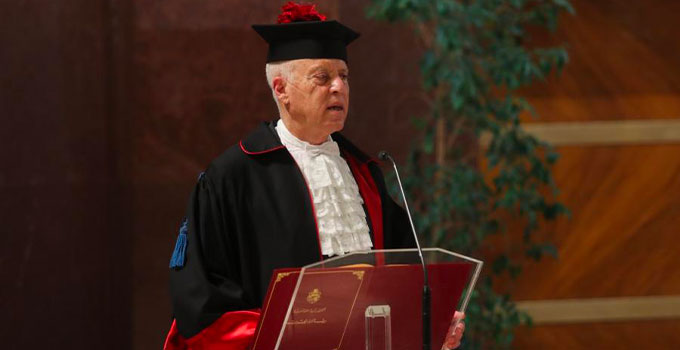
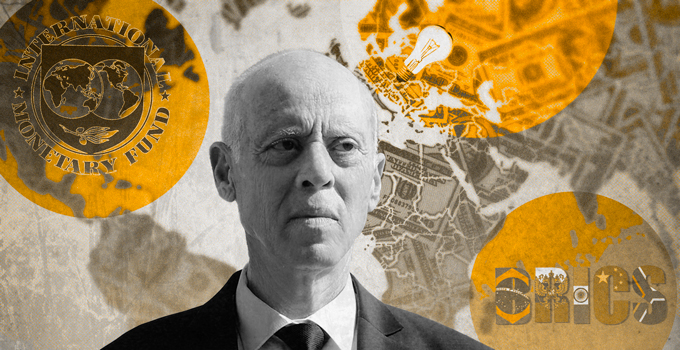

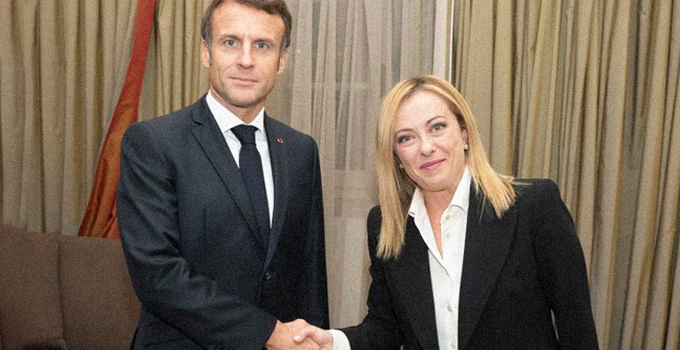
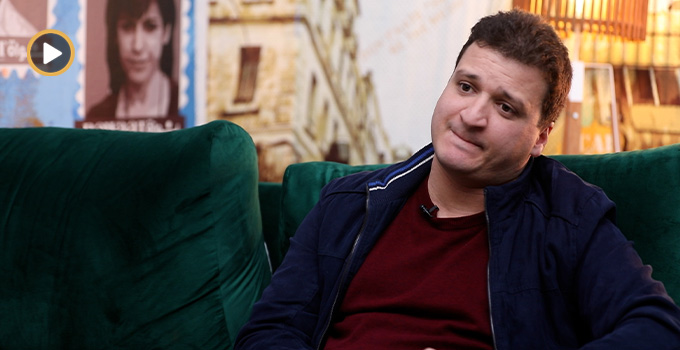
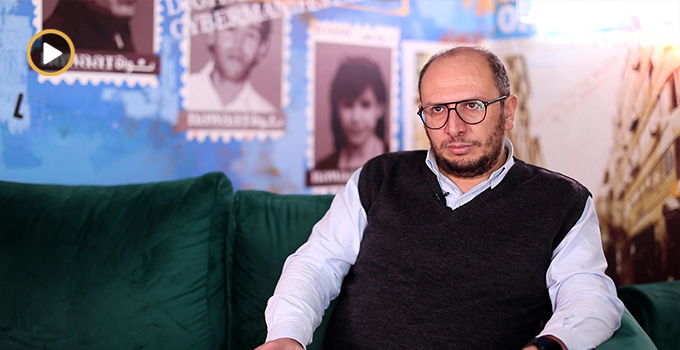
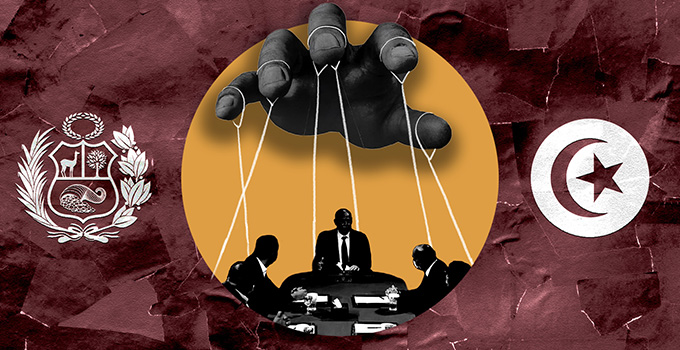

iThere are no comments
Add yours